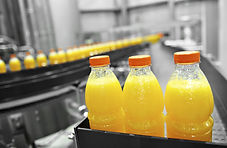
The Distance
Blog
Important Nutirents & Vitamins

Vitamin A is "a powerful antioxidant" and is important to maintain a "healthy vision," which is important during those early morning or late night runs when it's dark.

Vitamin B-12 is an important nutrient because it helps your body "break down the fat and protein you eat for the energy you need to get through a workout." B12 also aids in your body forming new red blood cells that carry oxygen through your body.
Choline is used to help your body "form a specific neurotransmitter necessary for good muscle control, memory, and focus." According to Dr.Axe it is important for "liver function, normal brain development, nerve function, muscle movement, supporting energy levels and maintaining a healthy metabolism."
Sports dietitian Linda Samuels, M.S., R.D., said, "A 2012 study found that when vitamin D was low in a group of runners, they had a biomarker for increased inflammation." So, vitamin D is important to help decrease our chance for injury.


Calcium is that nutrient that helps strengthen your bones. "It's also an electrolyte, aiding muscle and blood vessel contraction." Shawn Dolan, Ph.D., R.D., a triathlete, distance runner, and professor of exercise science at California State University at Long Beach said, "'When the body is low on calcium, it borrows from the skeleton. If what's borrowed never gets paid back, bone strength eventually gets compromised.'"


Vitamin C acts as an antioxidant that helps "sop up the free radicals you're exposed to on a run, like pollution." According to Dr.Weil, "Vitamin C helps to repair and regenerate tissues, protect against heart disease, aid in the absorption of iron, prevent scurvy, and decrease total and LDL cholesterol and triglycerides."

Vitamin E is important when it comes to helping your immune system fight against bacteria and viruses, which we are more vulnerable to when running in cold temperatures. It also sometimes "used for improving physical endurance, increasing energy, reducing muscle damage after exercise, and improving muscle strength."

Fiber is important so your body can maintain a healthy weight, stay regular, regulate blood sugar, and help lower your cholesterol.

According to Paul Thomas, EdD, RD, a scientific consultant to the National Institutes of Health, Office of Dietary Supplements, iron is important because "'it helps transport oxygen throughout the body.'" Unfortunately for us runners, we are "more likely to experience low iron levels than the general population because the mineral is lost through sweat."

Linda Samuels says, "'Magnesium is particularly important during a strenuous training session.'" This particular nutrient can help you get through a tough run or workout, and plays an important role in energy metabolism.

Linda Samuels said, "'Omega-3s have been shown to reduce inflammation after a run, which can improve tissue repair and reduce muscle pain,'" making them great for post-exercise recovery. This is also a nutrient that your body doesn't produce on its own, so you have to consume it, making it an "essential fatty acid."

Potassium is used for "hydration and maintaining proper muscle function." It is also an important source of replenishing electrolytes you lose when you sweat. This nutrient "'helps your muscles contract and relax, and contributes to fluid balance in your body,'" according to Linda Samuels.

Selenium is a nutrient that is an "antioxidant power that may ease post-exercise oxidative cell damage, maintaining thyroid function, and regulating metabolism."

Sodium is important because it "helps your body maintain proper fluid and electrolyte balance," according to Lisa Dorfman, M.S., R.D., author of Legally Lean: Sports Nutrition Strategies for Optimal Health & Performance.

Zinc is an important nutrient for runners to take in because helps with "proper wound healing, breaking down carbs, and making your immune system run in tip-top shape."
Vitamin A
Vitamin-B12
CALCIUM
Vitamin D
Vitamin C
CHOLINE
Vitamin E
FIBER
IRON
OMEGA-3
POTASSIUM
MAGNESIUM
SELENIUM
SODIUM
ZINC
CITATIONS:
Bastone, K. (2007, November 13). Key Nutrients Every Runner Needs. Retrieved January 12, 2018, from https://www.runnersworld.com/nutrition/nutrients-every-runner-needscom
Migala, J. (2015, March 4). The 15 Nutrients All Runners Need. Retrieved January 12, 2018, from https://www.runnersworld.com/nutrition/the-15-nutrients-all-runners-need/slide/15
Babcock, J. (2017, October 09). Vitamin A: Benefits, Sources & Side Effects. Retrieved January 12, 2018, from https://draxe.com/vitamin-a/
Babcock, J. (2017, October 12). What is Choline? Big Benefits & Signs of a Deficiency. Retrieved January 12, 2018, from https://draxe.com/what-is-choline/
Vitamin C Benefits - What Does Vitamin C Do? | Vitamin C Foods | Dr. Weil. (2017, September 11). Retrieved January 12, 2018, from https://www.drweil.com/vitamins-supplements-herbs/vitamins/vitamin-c-benefits/
VITAMIN E: Uses, Side Effects, Interactions and Warnings. (n.d.). Retrieved January 12, 2018, from https://www.webmd.com/vitamins-supplements/ingredientmono-954-vitamin%20e.aspx?activeingredientid=954
Watson, S. (n.d.). What You Need to Know About Iron Supplements. Retrieved January 12, 2018, from https://www.webmd.com/vitamins-and-supplements/features/iron-supplements#1
Axe, D. J. (2017, December 18). Omega-3 Benefits, Including for Heart and Mental Health. Retrieved January 12, 2018, from https://draxe.com/omega-3-benefits-plus-top-10-omega-3-foods-list/